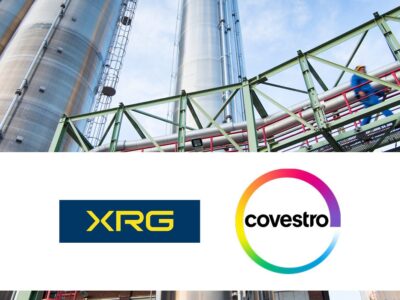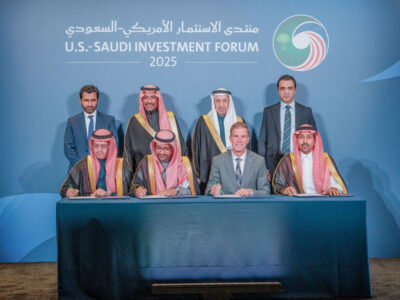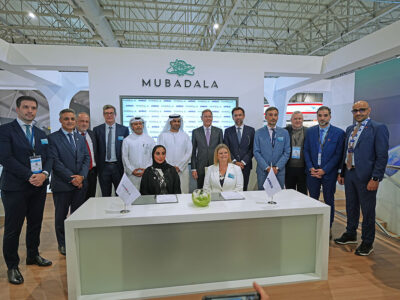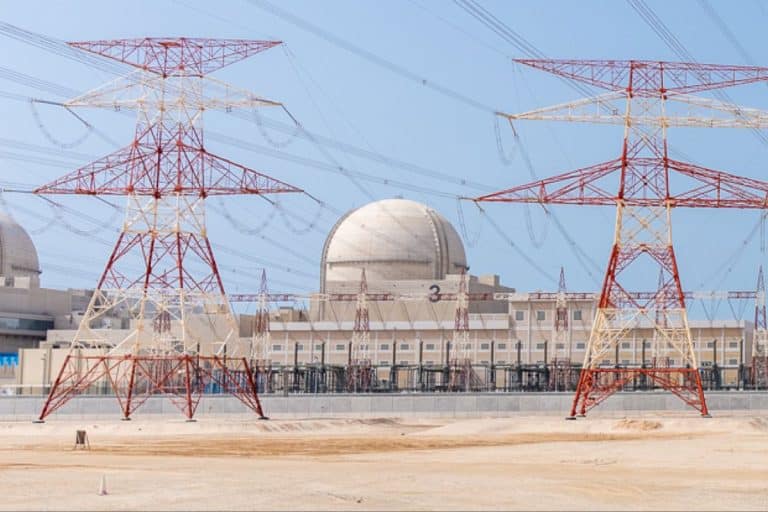Emirates Nuclear Energy and Corporation announced the commencement of commercial operations of Unit 3 of Barakah Nuclear Energy Plant, located in Al Dhafra in Abu Dhabi. This is one of the moves that marks UAE’s Year of Sustainability and increases contribution towards UAE Net Zero by 2050 targets.
The accomplishment further adds 1,400 megawatts of zero-carbon emission electricity capacity, boosting the total production of units to 4,200 megawatts of electricity for the UAE national grid.
Unit 3 completed the process from fuel load to commercial operations over four months faster than Unit 2 and over five months faster than Unit 1, this demonstrates how the operations’ teams utilised and implemented prior expertise while adhering to national regulations and international standards.
The unit has been delivered efficiently and in one of the shortest timeframes as compared to other third-generation reactors built globally, “demonstrating a new era for nuclear build,” the announcement read.
ENEC and its subsidiaries have one unit left to mark the completion of the four unit, Barakah Nuclear Energy Plant and move towards its commitment to deliver up to 25 percent of UAE’s electricity demand.
This is the first multi-unit operating plant in the Arab World and has already powered more than 80 percent of Abu Dhabi’s clean energy consumption in December 2022.
UAE’s energy security
“In the Year of Sustainability for the UAE, we are proud to take the UAE Peaceful Nuclear Energy Program another step forward with Unit 3 beginning commercial operations. This has been achieved less than a year after successfully starting commercial operations for Unit 2. Barakah is a successful global benchmark for other nations looking to diversify their energy portfolio during a time of international energy crises,” said Mohamed Ibrahim Al Hammadi, Managing Director and Chief Executive Officer of ENEC.
“With three units now operating commercially, we are delivering energy security, powering sustainable economic growth, driving innovation, and contributing to achieve our Net Zero strategy by 2050. We look forward to showcasing just how critical nuclear is in tackling climate change, using proven solutions available today, at COP28 in the UAE in November,” he added.
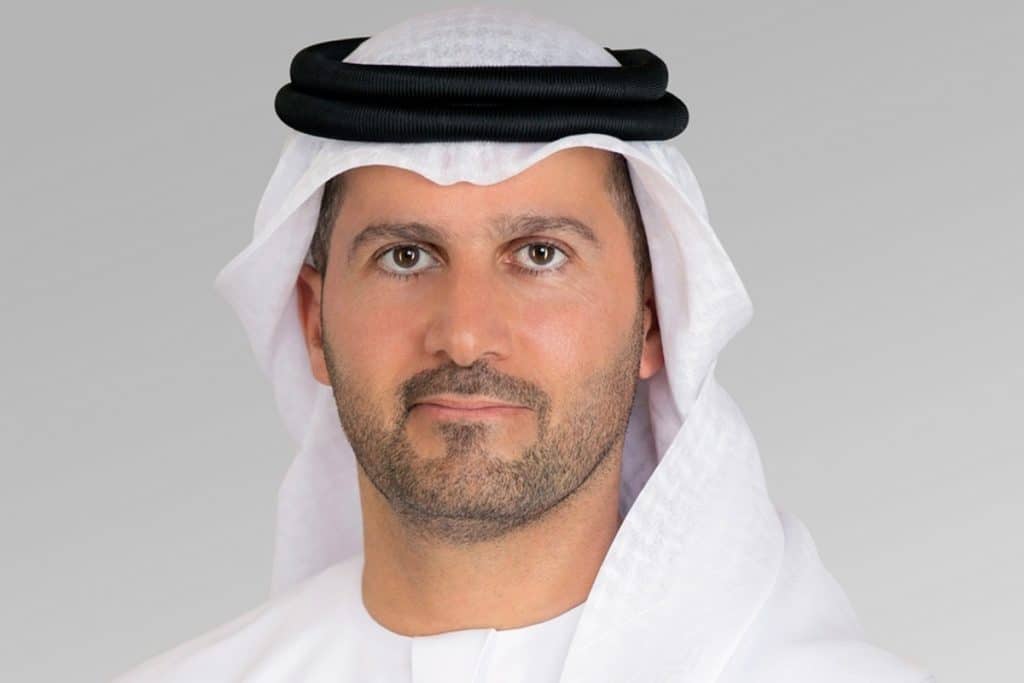
Nasser Al Nasseri, Chief Executive Officer of Barakah One Company, ENEC’s subsidiary in charge of representing the financial and commercial interests of the Barakah Plant project, said, “Today we celebrate an important day for the delivery of the Barakah Nuclear Energy Plant project with the commercial operations of Unit 3, and we reaffirm our commitment to clean electricity generation for the Emirates Water and Electricity Company (EWEC) as per the Power Purchase Agreement signed in 2016. The sale of clean electricity further supports Abu Dhabi’s Clean Energy Certification programme, allowing more businesses to demonstrate their sustainability credentials, creating unique competitive advantage, and stimulating the growth of our Net Zero economy.”
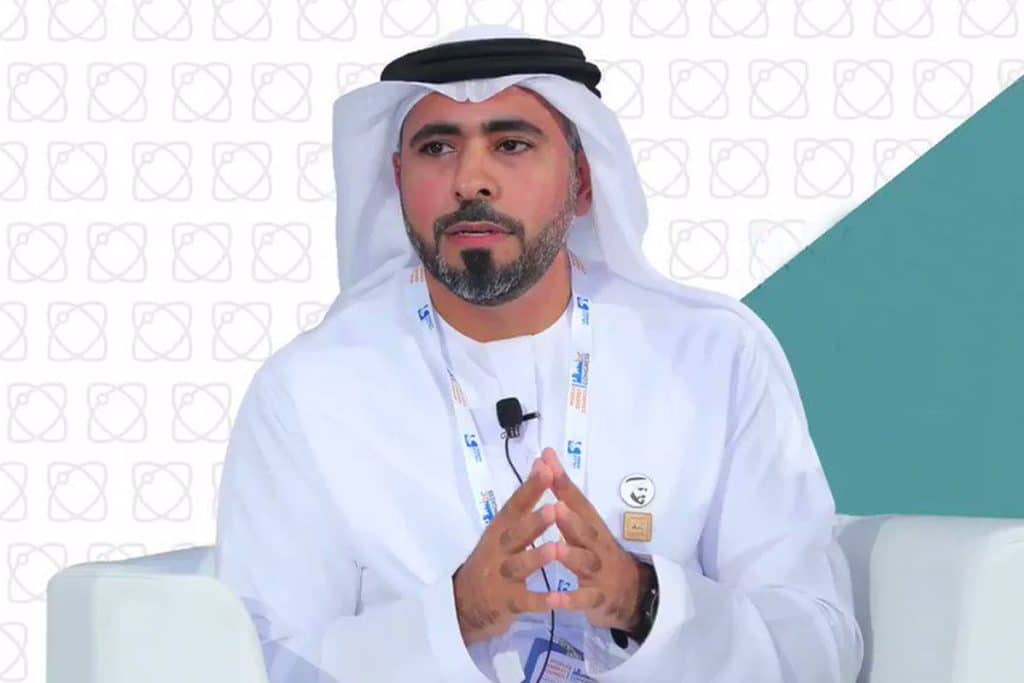
Ali Al Hammadi, Chief Executive Officer of Nawah, said, “This is a key achievement for Nawah, as we safely and efficiently begin commercial operations for Unit 3, in accordance with national regulations and international standards. Our highly skilled and qualified national and international experts have world-class operating experience to safely provide constant, reliable and sustainable clean electricity around the clock from three parallel operating units.”

The Barakah Plant, the region’s first is spearheading UAE’s decarbonisation efforts and supporting businesses in Abu Dhabi in their sustainability efforts through the provision of clean energy certificates.
The plant generates thousands of high-value jobs and adds millions of dollars in value for local companies. Once fully operational, the plant will prevent 22.4 million tonnes of carbon emissions, every year and will also free up billions of dirhams of natural gas that would have otherwise been used for electricity generation.
